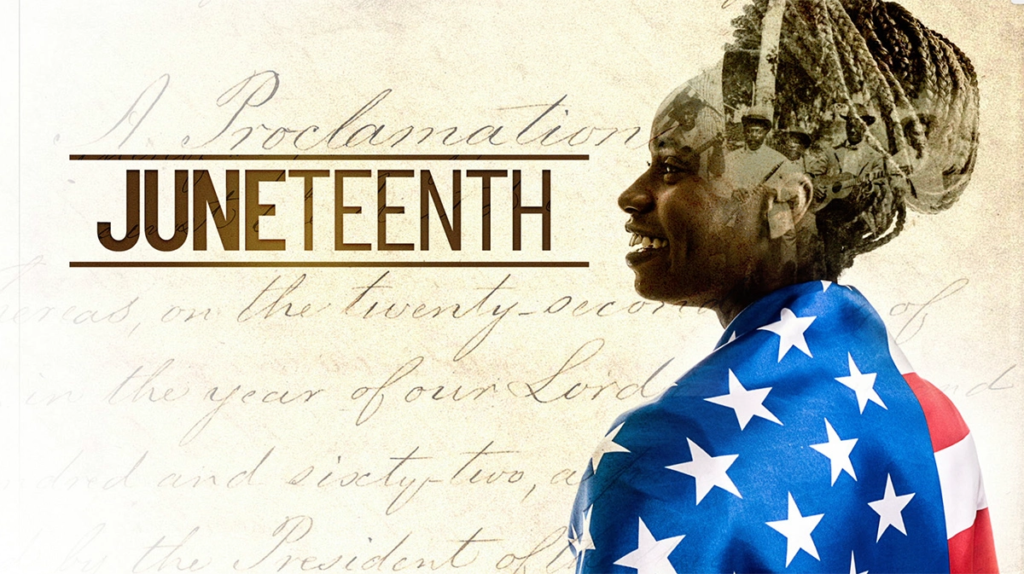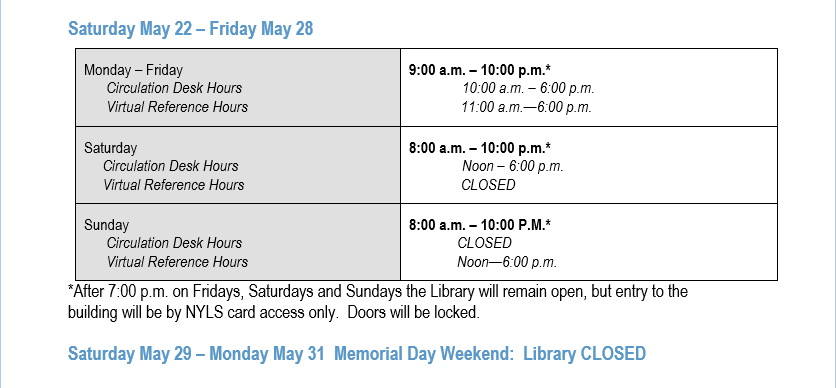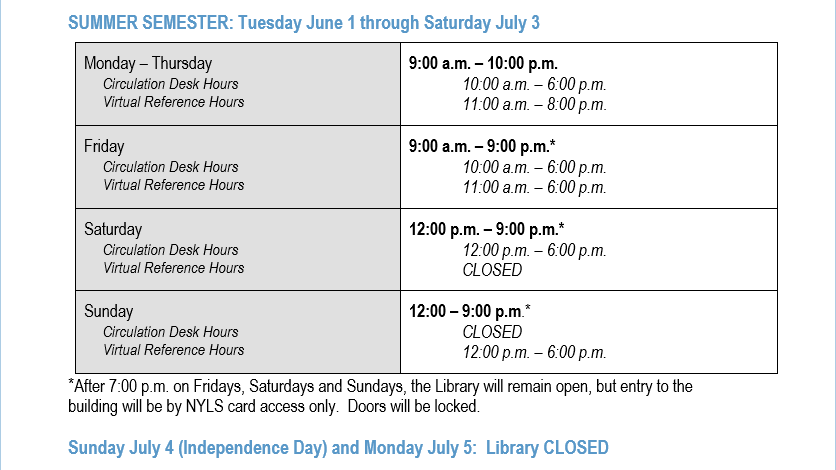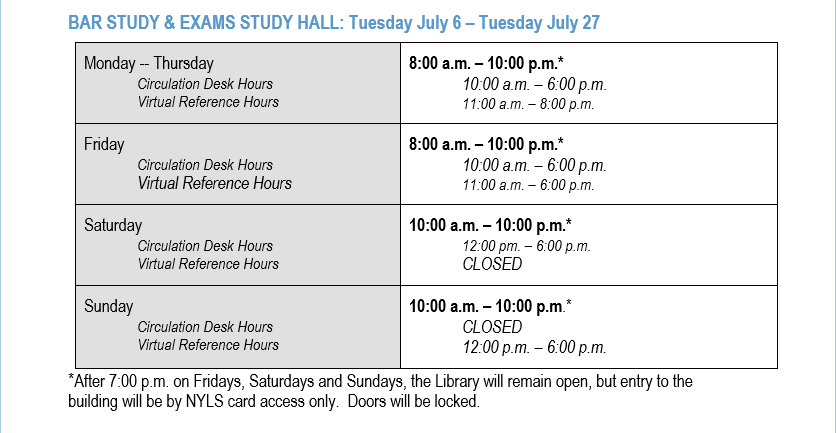Ramp Up Your Research Skills!
This summer, take advantage of multiple opportunities to up your research game and learn more about tools you’ll need in practice through our popular Summer Research Challenge! See the attached flyer for details.
Each session begins at 6:00 p.m., with a short introduction to the research area, and then moves on to a concrete research problem where you need to efficiently identify the law bearing on your client’s situation. The sessions are two hours long and will wrap up with a discussion of results and strategies.
Attend whichever sessions most interest you, but researchers who successfully complete all four will received a certificate signed by both Associate Dean William LaPiana and Associate Dean & Library Director Camille Broussard recognizing this achievement. It’s a great practical skill certification for your resume.
June 9: Researching Congressional Documents: Statutes and Legislative History
June 16: Navigating the Regulatory Maze: Research in Administrative Law
June 23: Where in the World is the Law: Tools and Strategies for International Law Research
June 30: Research on the Road to Trial: Experts, Juries, Discovery and More
For more information and to register, click this link, scroll down to the June calendar, and select the sessions you would like to register for. You will then be taken to the registration page for that session.
Research Skills Workshops
In addition to the Summer Research Challenge, we will also be offering our regular Research Skills Workshops. These sessions are intended to give pointers on how to handle research situations you might face this summer. The workshops are 30 minutes long and will be offered on Tuesdays & Thursdays at 5:15 p.m., from June 8 through July 1, 2021. To register, click this link, scroll down to the June calendar, and select the sessions you would like to register for. You will then be taken to the registration page for that session.







